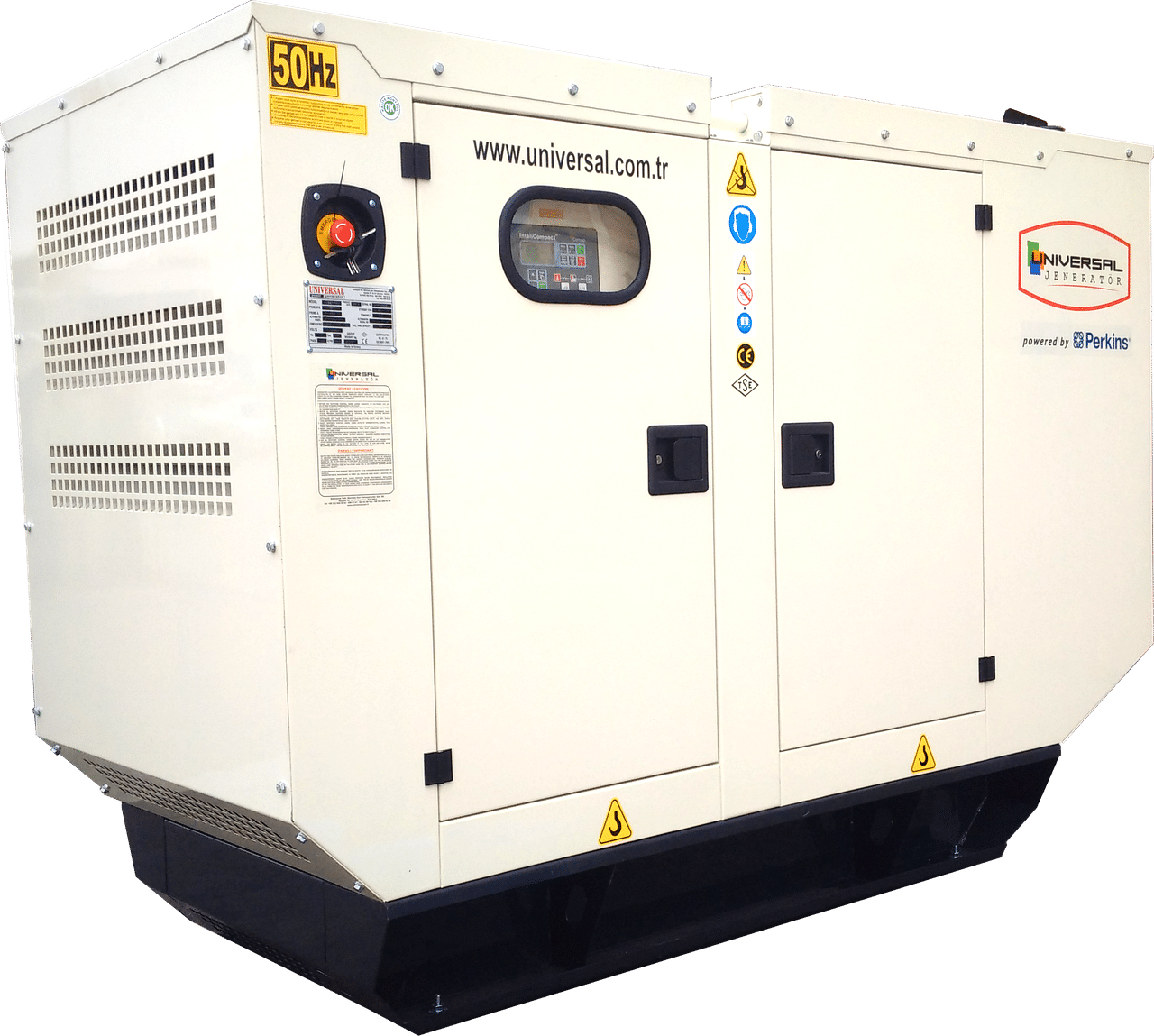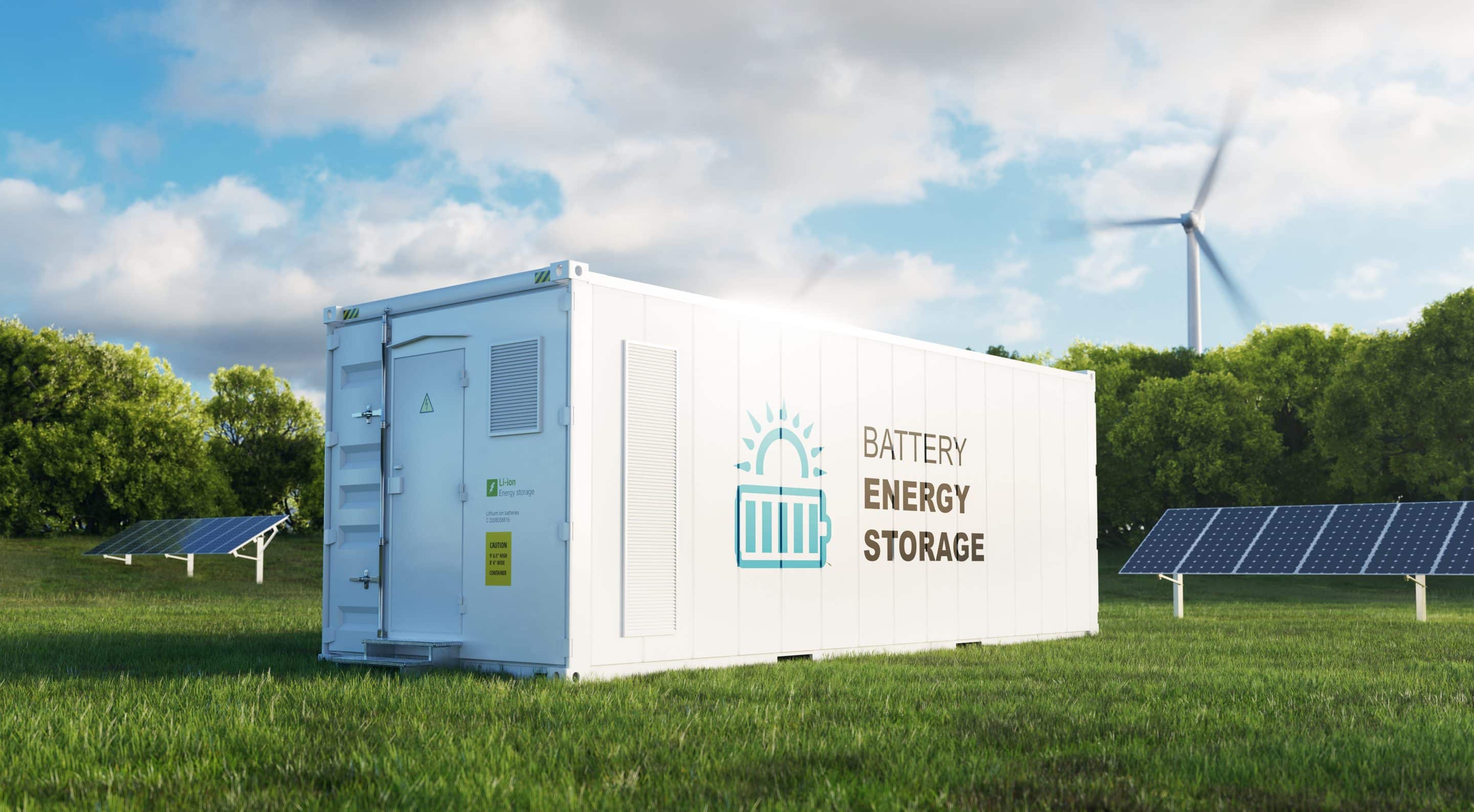Today, let’s explore the dynamic battle between two heavyweight contenders: battery storage systems and traditional generators. Each has its own unique strengths and weaknesses, but understanding these key differences is crucial for making informed decisions about your energy needs. So, let’s put on our lab coats, grab our safety goggles, and get ready to embark on an electrifying journey of energy storage insights!
Table of contents:
1. Introduction to Battery Storage and Generators
2. Battery Storage Systems
3. Generators
4. Key Comparison Factors Battery Storage vs. Generator
5. Use Cases and Applications
6. How to Choose the Right Solution for Your Needs
7. Future Trends and Innovations
8. Conclusion and Recommendations Battery Storage vs. Generator
Introduction to Battery Storage and Generators
I’m excited to introduce you to two pivotal players in the realm of energy resilience: battery storage systems and generators. These technologies have been competing to provide dependable power during outages, peak demand periods, and in remote locations where the grid is absent or unreliable.
Battery storage systems leverage advanced electrochemical cells to store energy, which can be discharged when neeeded. The most prominent battery types include lithium-ion, lead-acid, and flow batteries. Each offers distinct advantages, such as high energy density, low maintenance, and long cycle life. Battery storage has seen significant growth in recent years, thanks to its versatility, scalability, and compatibility with renewable energy sources like solar and wind.
Generators, on the other hand, have been a time-tested solution for on-demand power generation. These devices convert mechanical energy from an external fuel source, such as diesel, gasoline, or propane, into electrical energy. Renewable energy generators, like solar and wind, are also gaining traction as sustadinable alternatives. Traditional fuel-based generators are known for their high power output, making them an attractive choice for meeting substantial energy demands.
However, the choice between battery storage and generators is far from simple. It involves careful consideration offactors such as efficiency, cost, environmental impact, noise levels, and long-term durability. As we delve deeper into these technologies, our goal is to provide you with the knowledge necessary to make an informed decision when selecting the ideal power backup solution for your unique needs.
Battery Storage Systems
Battery storage systems have emerged as a popular choice for energy storage, offering a versatile and scalable solution to store electricity for various applications. These systems consist of electrochemical cells that convert electrical energy into chemical energy, storing it for future use. When the stored energy is needed, the chemical energy is converted back into electrical energy, powering the connected devices or appliances.
Types of Batteries
There are several types of battery storage systems, each with its unique characteristics and advantages:
- Lithium-ion Batteries: Lithium-ion technology has become the gold standard for modern battery storage systems, thanks to its high energy density, longcycle life, and low self-discharge rate. These batteries are commonly used in residenntial, commercial, and utility-scale energy storage applications, as well as electric vehicles.
- Lead-acid Batteries: A more traditional option, lead-acid batteries have been used in various applications for over a century. Although they have a lower energy density and shorter cycle life compared to lithium-ion batteries, they remain popular due to their lower upfront cost and ease of recycling
- Flow Batteries: Flow batteries, such as vanadium redox and zinc-bromine, use liquid electrolytes stored in external tanks, offering a unique advantage in terms of scalability and longevity. These batteries can be easily scaled up by increasing the size of the electrolyte tanks, and they typically have a long cycle life with minimal degradation.
Advantages of Battery Storage
Battery storage systems offer several keey advantages, including:
Efficiency: Modern battery storage systems, like lithium-ion, boast high round-trip efficiency, meaning that a large portion of the stored energy can be utilized effectively when needed.
Scalability and Flexibility: Battery storage systems can be easily scaled up or down depending on the user’s energy requirements, and they can be used in conjunction with renewable energy sources, such as solar panels or wind turbines.
Environmental Friendliness: Battery storage systems produce no direct emissions and can help reduce overall carbon footprint when paired with renewable energy sources.
Limitations and Challenges
However, there are also some limitations and challenges associated with battery storage systems:
- Capacity: The energy storage capacity of batteries is limited, and larger systems can be quite expensive. This may necessitate frequent recharging during prolonged power outages or high energy demand periods.
- Discharge Rate: Batteries have a maximum discharge rate, which may not be sufficient for extremely high-power applications or sudden surges in energy demand.
- Temperature Sensitivity: Extreme temperatures can impact the performance and lifespan of batteries, particularly in the case of lithium-ion technology.
Despite these challenges, battery storage systems continue to gain popularity as a clean, efficient, and scalable solution for energy storage in various applications, from residential backup power to grid-scale energy management.

Generators
Generators have long been a reliable and widely used solution for on-demand power generation, ensuring a steady supply of electricity during outages, peak demand periods, and in off-grid or remote locations. These devices function by converting mechanical energy, typically derived from an external fuel source or renewable energy, into electrical energy that can be used to power appliances and devices.
Types of Generators
There are several types of generators, each with its unique features and applications:
Fuel-based Generators:
Diesel Generators: Diesel generators are known for their duraability, efficiency, and ability to provide a high power out put. They are often used in commercial, industrial, and large-scale residential applications, where the energy demand is substantial.
Gasoline Generators: Gasoline generators are more common in small-scale residential and portable applications due to their lower cost and ease of operation. However, they are less fuel-efficient and have a shorter lifespan compared to diesel generators.
Propane Generators: Propane generators offer a cleaner-burning alternative to diesel and gasoline options, with lower emissions and reduced noise levels. They are suitable for both residential and commercial applications.
Advantages of Generators
Generators offer several key advantages, including:
- High Power Output: Fuel-based generators can provide substantial power output, making them suitsable for applications with high energy demand.
- On-Demand Energy Supply: Generators can be started and stopped as needed, ensuring a steady suply of electricity during power outages or peak demand periods.
Limitations and Challenges
However, there are also some limitations and challenges associated with generators:
- Fuel Dependence: Fuel-based generators rely on a continuous supply of diesel, gasoline, or propane, which can be subject to price fluctuations and availability issues.
- Emissions: Traditional fuel-based generators produce greenhouse gas emissions and air pollutants, contributing to climate change and air quality concerns.
- Noise: Generators, particularly fuel-based options, can produc significant noise levels, which may not be suitable for residential areas or noise-sensitive environments.
- Maintenance Requirements: Generators typically require more frequent maintenance compared to batery storage systems, such as oil changes, filter replacements, and engine overhauls.
Despite these challenges, generators continue to play a crucial role in ensuring a reliable power supply across various applications, from residential backup power to disaster response and remote energy systems. The ongoing development of renewable energy generators offers promising alternatives to traditional fuel-based options, contributing to a cleaner and more sustainable energy future.
Key Comparison Factors Battery Storage vs. Generator
When comparing battery storage systems and generators, several key factors must be considered to determine the most suitable power backup solution for your specific needs. These factors include:
- Energy Efficiency and Losses: Battery storage systems, particularly lithium-ion batteries, tend to have high round-trip efficiency, with minimal energy loss dur ing the charging and discharging process. Generators, on the other hand, may have lower overall efficiency, as a portion of the input energy (fuel) is lost as heat during the conversion process.
- Initial Investment and Operating Costs: Generators often have a lower upfront cost compared to battery storage systems. However, the ongoing operating costs, including fuel expenses and maintenance, may be higher for generators. In contrast, battery storage systems may have higher initial cost but lower operating costs, as they require minimal maintenanc and no fuel expenses when paired with renewable energy sources.
- Environmental Impact and Carbon Footprint: Battery storage systems produce no direct emissions, making them a cleaner option, especially when combined with renewable energy sources like solar or wind. Traditional fuel-based generators produce greenhouse gas emissions and air pollutants, which can contribute to climate change and air quality concerns. Renewable energy generators, such as solar and wind, offer emission-free alternatives.
- Noise Levels and Neighborhood Considerations Generators, especially fuel-based ones, can generate significant noise levels during operation, which may not be suitable for residential areas or noise-sensitive environments. Battery storage systems are virtually silent during operation, making them a more neighbor-friendly option.
- Lifespan, Durability, and Maintenance Requirements: Battery storage systems, particularly lithium-ion batteries, generally have a long cycle life and require minimal maintenance. However, their performance may degrade over time, eventually necessitating a replacement. Generators typically have a longer overall lifespan but require more frequent maintenance, such as oil changes, filter replacements, and engine overhauls.
- Scalability and Flexibility: Battery storage systems offer greater scalability and flexibility, as they can be easily expanded or reduced based on energy requirements. They can also be seamlessly integrated with renewable energgy sources. Generators, particularly fuel-based options, may have more limited scalability and are less compatible with renewable energy systems.
- Discharge Rate and Power Output: Generators can provide a high power output on demand, making them suitable for applications with substantiall energy needs. Batteries have a maximum discharge rate, which may not be sufficient for extremely high-power applications or sudden surges in energy demand.
- Response Time: Battery storage systems can deliver power almost instantaneously, ensuring minimal disruption during power outages or suddden demand surges. Generators, especially fuel-based options, may take some time to start and reach full power output, which could result in temporary power disruptions.
- Energy Independence and Self-Sufficiency: Battery storage systems, when paired with renewable energy sources like solar or wind, can provide greater energy independence and self-sufficiency, reducing reliance on grid electricity and fossil fuels. Generators that rely on fuel sources may be more susceptible to fuel price fluctuations and availability issues.
- Space Requirements and Installation: Battery storage systems usually have a smaller physical footprint compared to generators of similar capacity. However, the installation of battery systems may be more complex, as they may require aditional components like inverters and chargers. Generators , particularly portable options, can be easier to install but may require more space for proper ventilation and noise management.
- Grid Support and Peak Shaving: Battery storage systems can provide valuable grid support services, such as peak shaving, load shifting, and frequenncy regulation, helping to stabilize the grid and reduce peak demand charges. Generators, particularly renewable energy generators, may also contribute to grid stability, but their potential for peak shaving and load shifting is often more limited.
- Compatibility with Smart Grid and Microgrid Systems: Battery storage systems can be easily integrated into smart grid and microgrid systems, allowing for advanced energy management and optimization. Generators can also be used in microgrid systems, but their compatibility with smart grid technologies may be more limited due to factors like fuel dependence and emissions.
- Safety Considerations: Both battery storage systems and generators have unique safety considerations. For battery systems, there is a potential risk of thermal runaway or fire, particularly with lithium-ion technology. Proper instalation, thermal management, and safety features can mitigate these risks. Generators, especially fuel-based options, pose risks related to fuel storage, handling, and combustion, which may require specific safety precautions and ventilation requirements.
- Load Types and Power Quality: Battery storage systems typically provide cleaner power with fewer voltage fluctuations, making them suitable for sensitive electronics and devices that require stable power. Generators, particularly fuel-based options, may produce power with more voltag variations, which could impact the performance of sensitive equipment.
- System Integration and Automation: Battery storage systems can be more easily integrated with home automation systems and smart devices, allowing for advanced energy management and monitoring. Generators can also be integrated into these systems, but their level of automation and control may be more limited.
- Incentives and Financial Support Depending on your location, there may be government incentives, rebates, or financial support available for battery storage systems or renewable energy generators, which can help offset the initial investment costs. It’s essential to research the incentives available in your area when making your decision.
- Local Regulations and Permitting: Local regulations and permitting requirements may vary depending on the type of backup power system you choose. Battery storage systems may be subject to specific installation codes or fire safety regulations, while generators, particularly fuel based options, may have restrictions related to emissions, noise, or fuel storage.
- Climate and Weather Conditions: The performance of battery storage systems and generators can be impacted by extreme temperatures and weather condittions. For example, battery storage systems, especially lithium-ion batteries, can be sensitive to high or low temperatures. Generators, particularly fuel-based options, may have challenges related to fuel storage and operation in cold climates.
- Resale Value and Property Considerations: The installation of battery storage systems or renewable energy generators, such as solar or wind, may increase the resale value of a property and contribute to its overall sustainability. Traditional fuel-based generators may not have the same impact on property value and may require additional considerations for potential buyers, such as fuel storage and main tenance requirements.
- Backup Duration and Energy Storage Capacity: The length of time you need backup power can influence your choice between battery storage systems and generators. Batery storage systems have a limited energy capacity, which may require recharging during prolonged power outages. Generators, particularly fuel-based options, can run as long as there is a fuel supply available, making them more suitable for extended power backup needs.
- Disaster Preparedness and Resilience: In areas prone to natural disasters like hurricanes, floods, or earthquakes, it’s essential to consider the resilience of your backup power system. Battery storage systems, particularly when paired with renewable energy sources, can provide power during extended grid outages. Fuel-based generators may rely on external fuel supply chains that could be disrupted during emergencies, limiting their long-term backup capabilities.
- Operational Learning Curve and User Friendliness: Battery storage systems can be more user-friendly and automated, with minimal manual intervention needed during operation. Generators, particularly fuel-based options, may require more hands-on involvement, including starting the generato r, monitoring fuel levels, and performing regular maintenance tasks.
- Remote Monitoring and Control Battery storage systems often come equipped with remote monitoring and control features, allowing users to track performance, energy usage, and system health from a distance. Some generators may also ofer remote monitoring options, but their level of remote control and automation may be more limited.
- Decommissioning and Recycling: Battery storage systems, particularly lithium-ion batteries, can have specific recycling and disposal requirements due to the materials used in their construction. Generators, particularly fuel based options, may also require proper disposal and recycling of components, but their overall recycling and disposal process may be less complex.
- Aesthetics and Visual Impact: Battery storage systems are generally more compact and have a smaller visual impact compared to generators. Generators, particularly large fuel-based options, may be more conspicuous and require additional measures to minimize their visual presence, such as enclosures or landscaping.
- Fuel Storage and Transportation: Generators that rely on diesel, gasoline, or propane require proper storage and transportation of fuel, which can be subject to safety regulations and potential hazards. Battery storage systems, on the other hand, do not require fuel storage or transportation, simplifying their operation and reducing potential safety concerns.
- Voltage Regulation and Stability: Battery storage systems typically deliver stable voltage levels and can effectively regulate voltage fluctuations, ensuring high-quality power for sensitive equipment. Generators, particularly fuel-based options, may be more susceptible to voltage variations, which can impact the performance of sensitive devices.
- Harmonic Distortion: Battery storage systems generally produce power with lower harmonic distortion, contributing to cleaner and higher-quality energy. Generators, particularly fuel-based options, may generate power with higher harmonic distortion levels, which could affect the performance and lifespan of connected equipment.
- Power Factor and Efficiency: Battery storage systems tend to have a high power factor and overall efficiency, ensuring optimal energy utilization and reduced energy loss. Generators , especially fuel-based options, may have a lower power factor and efficiency, resulting in higher energy losses and potentially higher operating costs.
- Frequency Stability: Battery storage systems can maintain a stable and precise output frequency, which is esential for the proper functioning of sensitive equipment and electronics. Generators, particularly fuel-based options, may experience more significant frequency fluctuations, which could lead to operational issues in certain devices.
- Transient Response: Battery storage systems have a fast transient response, enabling them to quickly react to sudden changes in load or energy demand. Generators, particularly fuel-based options, may have a slower transient response, resulting in temporary voltage dips or spikes during load changes.
- Brownout and Overvoltage Protection: Battery storage systems can provide effective protection against brown outs (low-voltage conditions ) and overvoltage events, ensuring the safe operation of connected equipment. Generators may offer some level of protection against these events, but their ability manage voltage fluctuations may be more limited compared to battery storage systems.
Use Cases and Applications
Both battery storage systems and generators offer various use cases and applications, depending on the specific energy requirements and circumstances. Here are some common use cases for each backup power solution:
Battery Storage Systems:
Residential Backup Power: Battery storage systems can provide backup power to homes during grid outages, ensuring the continuous operation of essential appliances and devices, such as lighting, refrigeration, and communication equipment.
Peak Shaving and Demand Management: Battery storage systems can store excess energy during periods of low demand and discharge it during peak demand, reducing electricity costs and minimizing grid stress.
Renewable Energy Integration: Battery storage systems can store energy generated from renewable sources like solar panels and wind turbines, enabling households and businesses to maximize their renewable energy use and reduce their dependence on grid electricity.
Microgrids and Remote Energy Systems: Battery storage systems can be utilized in microgrids and remote energy systems to provide a stable and reliable power supply in off-grid locations or areas with unreliable grid connections.
Grid Support Services: Battery storage systems can provide valuable grid support services, such as frequency regulation, voltage support, and load leveling, helping to maintain grid stability and reliability.
Electric Vehicle (EV) Charging Support: Battery storage systems can store energy and discharge it during peak EV charging times, reducing stress on the grid and providing a more efficient and eco-friendly charging solution.
Time-of-Use (TOU) Optimization: For those under TOU pricing structures, battery storage systems can store energy during off-peak periods when electricity is cheaper and discharge it during peak periods when rates are higher, helping to reduce electricity costs.
Uninterruptible Power Supply (UPS): Battery storage systems can serve as UPS for critical equipment, such as data centers, hospitals, and telecommunication facilities, providing instant power during outages and maintaining operational continuity.
Backup for Solar Energy Systems: Battery storage systems can store excess solar energy generated during the day, allowing for energy use during nighttime or cloudy days, maximizing solar energy utilization.
Generators:
Residential Backup Power: Generators, particularly portable or standby options, can provide backup power to homes during grid outages, ensuring the continuous operation of essential appliances and devices.
Commercial and Industrial Backup Power: Generators, especially diesel and natural gas options, can provide substantial power output, making them suitable for comercial and industrial facilities that require reliable backup power during outages or emergencies.
Construction Sites and Temporary Power: Generators can be used to provide temporary power at construction sites, outdoor events, or other locations where grid electricity is unavailable or insufficient.
Remote and Off-Grid Power Solutions: Generators, particularly those fueled by renewable energy sources such as solar or wind, can provide power in remote or off- grid locations where grid connections are unavailable or unreliable.
Emergency Response and Disaster Relief: Generators can be utilized during emergencies and disaster relief operations to provide power for medical facilities, comunication equipment, and other critical infrastructure.
Agriculture and Farming: Generators can provide power for agricultural operations, such as irrigation systems, crop storage facilities, and livestock management, particularly in remote or off-g rid locations.
Backup for Healthcare Facilities: Generators can provide essential backup power for healthcare facilities, such as hospitals and clinics, ensuring the continuous operation of life-saving equipment and critical systems during power outages.
Marine and Boating: Marine generators can supply power for boats, yachts, and other marine vessels, providing electricity for navigation, communication, and onboard appliances.
Recreational Vehicles (RVs) and Camping: Portable generators can supply power for RV s and camping activities, enabling the use of appliances, lighting , and electronic devices in remote locations or off-grid situations.
Backup for Critical Infrastructure: Generators can serve as backup power for critical infrastructure, such as water treatment plants, telecommunication systems, and transportation networks, ensuring their continuous operation during power outages or emergencies.
Future Trends and Innovations
The energy storage and backup power industry is continuously evolving driven by technological advancements, changing energy landscapes, and increasing demand for sustainable solutions. Here are some future trends and innovations to look out for in battery storage systems and generators:
Battery Storage Systems:
Advanced battery technologies: Emerging battery chemistries, such as solid-state batteries, flow batteries, and next-generation lithium-ion technologies, will offer improved energy density, safety, and performance, potentially revolutionizing the energy storage industry.
Decreasing costs: As battery production scales up and technologies mature, the costs of battery storage system s are expected to continue decreasing, making them more accessible and affordable for a broader range of consumers.
Virtual power plants (VPPs): Aggregating distributed energy resources, such as battery storage systems, solar panels, and demand response, can create virtual power plants that provide grid support services, enhancing grid resilience and flexibility.
Integration with smart grids and Internet of Things (IoT): Battery storage systems will become more integrated with smart grids and IoT devices, allowing for advanced energy management, demand response, and remote monitoring and control.
Generators:
Hydrogen fuel cells: As the hydrogen economy expands, hydrogen fuel cells will likely become more prevalent as a sustainable, zero-emission backup power solution for various applications.
Hybrid generator systems: Combining generators with renewable energy sources or battery storage systems can create more efficient and sustainable backup power solutions, optimizing energy utilization and reducing emissions.
Advanced control and monitoring systems: Future generators will likely feature more sophisticated control and monitoring systems, enabling better integration with home automation, smart grids, and IoT devices.
Improved efficiency and reduced emissions: Technological advancements in generator engines and control systems will lead to improved fuel efficiency, reduced noise levels, and lower emissions, making generators more environmentally friendly and user-friendly.
Portable solar generators: As solar panel technology advances, portable solar generators will become more efficient and capable of providing reliable backup power in various situations, such as camping, emergencies, and off-grid living.
Conclusion and Recommendations Battery Storage vs. Generator
In conclusion, choosing between battery storage systems and generators depends on your specific needs, preferences, and circumstances. Each option offers unique benefits and drawbacks, making them suitable for different applications and energy requirements.
Battery storage systems are an excellent choice for those seeking an eco-friendly, quiet, and low-maintenance backup power solution. When integrated with renewable energy sources like solar or wind, they provide clean and high-quality power output, making them ideal for sensitive electronics. Battery storage systems also allow for seamless integration with smart grids and IoT devices for advanced energy management.
On the other hand, generators, particularly fuel-based options, offer a reliable source of backup power with extended runtimes as long as there is a fuel supply. They are well-suited for heavy-duty power needs, temporary power applications, or situations where longer backup power durations are crucial. However, generators may be noisier, produce emissions, and require more hands-on maintenance compared to battery storage systems.
To make the best decision, consider factors such as energy quality, initial investment, ongoing costs, environmental impact, and local regulations. It’s also a good idea to consult with professionals who can provide tailored recomendations for your specific situation. By carefully evaluting these factors, you can choose the most appropriate backup power solution—battery storage or generator—that meets your unique needs and circumstances.
As the energy storage and backup power industry continues advance, staying informed about future trends and inovations is crucial. This knowledge will help ensure that your chosen solution remains relevant, efficient, and environmentally sustainable in the long term.



